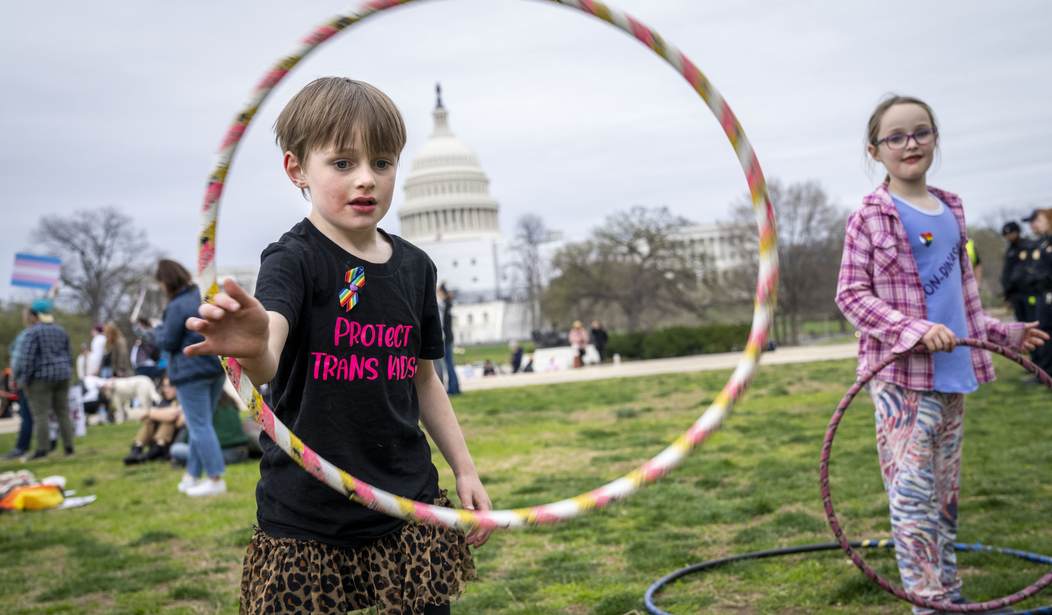Much of Europe is engaged in a serious re-examination of the efficacy and necessity of gender-affirming care for minors. Independently of one another, medical societies in England, Finland, Sweden, France, and Norway have all decided to take a second look at treating gender dysphoria in minors after research has shown that puberty blockers and other gender transition efforts failed to make a difference in the mental health of kids.
The NHS recognizes an even greater uncertainty regarding youth with what they call "late-onset gender dysphoria" (alternative names for this presentation include "ROGD"). This signals that the NHS may take an even more cautious approach to this (now ubiquitous) patient cohort./7 pic.twitter.com/oidoQ3ZP19
— SEGM (@segm_ebm) June 9, 2023
But that hardly matters to the American medical establishment. Activists in the U.S. point to the universal agreement by the American Medical Association, the American Psychiatric Association, and the American Academy of Pediatrics, all of which continue to insist that gender transition treatments are necessary to “save lives.”
A growing body of evidence points to other psychological disorders that afflict young people and lead to suicidal tendencies and mental anguish. Gender dysphoria is only one possibility that clinicians should examine.
But don’t tell the American Medical Association about any of this.
Due to widespread misinformation about medical care for transgender and gender-diverse teens, 18 states have passed laws or instituted policies banning gender-affirming care. More than 30 percent of the nation’s transgender and gender-diverse youth now live in states with gender-affirming care bans, according to the Human Rights Campaign. Some policies are even restricting transgender and gender-diverse adults’ access to care.
These policies do not reflect the research landscape. More than 2,000 scientific studies have examined aspects of gender-affirming care since 1975, including more than 260 studies cited in the Endocrine Society’s Clinical Practice Guideline.
Pediatric gender-affirming care is designed to take a conservative approach. When young children experience feelings that their gender identity does not match the sex recorded at birth, the first course of action is to support the child in exploring their gender identity and to provide mental health support, as needed.
This is not a medical debate. If it were a medical debate, the AMA and other organizations wouldn’t cherry-pick studies that buttress their positions and ignore what’s happening in Europe. A debate is what they’re having in Europe, where the medical establishments appear to be under a lot less pressure to conform.
But doctors do not agree, particularly in Europe, where no treatments have been banned but a genuine debate is unfurling in this field. In Finland, for example, new treatment guidelines put out in 2020 advised against the use of puberty-blocking drugs and other medical interventions as a first line of care for teens with adolescent-onset dysphoria. Sweden’s National Board of Health and Welfare followed suit in 2022, announcing that such treatments should be given only under exceptional circumstances or in a research context. Shortly after that, the National Academy of Medicine in France recommended la plus grande réserve in the use of puberty blockers. Just last month, a national investigatory board in Norway expressed concerns about the treatment. And the U.K.’s only national gender clinic for children, the Tavistock, has been ordered to close its doors after a government-commissioned report found, among other problems, that its Dutch-protocol-based approach to treatment lacked sufficient evidence.
What someone does when they turn 18 is their business. But until then, the medical oath of “First, do no harm” must guide physicians and caregivers in treating younger patients.










Join the conversation as a VIP Member